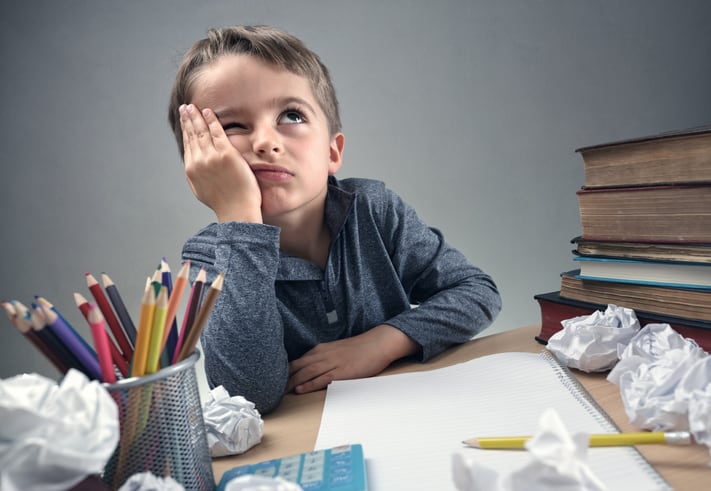Your child is bright, inquisitive and curious. They love to learn new things, ask hundreds of questions and seem to have boundless energy. So why are their grades plummeting? Why are there so many messages from school about disruptive behavior? Kindergarten and first grade were so successful; why, as your child is getting older and should be more accustomed to school protocols, are they having a more and more difficult time?
At Alzein Pediatrics, we’ve seen many children suddenly struggle around third grade and parents begin to look for answers around the holiday break. It could be your child has ADHD, or Attention-Deficit Hyperactivity Disorder. Fortunately, we learn more and more about this disorder all the time, so getting help is easier than it’s ever been.
The Centers for Disease Control estimate that around 6 million children have been diagnosed with ADHD. This disorder disrupts typical brain development and cause a lack of focus and impulsive behavior. Like many developmental disorders, ADHD will look a little differently for each child.
The most important thing to remember is that, like all developmental disorders, the sooner the condition is diagnosed and intervention begins, the easier it is for your child – and your family – to live with ADHD.
Experts have now developed a two-track system to categorize the various ways ADHD can present. The first track measures the severity of the condition, ranging from mild to moderate to severe. The second track describes the type of developmental disruption. ADHD can present as “predominantly inattentive,” “predominantly hyperactive/impulsive,” or as a combination of inattentive and impulsive symptoms. When the type and severity of ADHD is determined, the results will help guide parents toward effective treatment plans.
While some signs of ADHD can show up in children as young as 3 years of age, diagnosing the condition in young children is difficult and problematic; much development is still in progress and developmental timelines vary widely among children. The most common age to receive an ADHD diagnosis is between the ages of 6 and 8. This is when – you guessed it – ADHD symptoms become disruptive to the child’s classroom performance and behavior. Putting together this diagnosis will involve input from a variety of sources, from parents and child to your Alzein Pediatrics providers and teachers. That input will help identify the best ways to manage and treat the child’s ADHD.
Most children with ADHD improve by using a range of treatments. For children younger than 13, the use of behavior management training by parents can help institute best practices at school and at the home. Children might be referred to behavioral therapy, to strengthen positive behaviors and limit unwanted behaviors. Adolescents with ADHD can also benefit from executive function training to improve their ability to self-monitor their behavior and learn organization and good decision-making. Because anxiety and depression are also common in children with ADHD, many children also benefit from mental health counseling.
While these therapies help children and parents adapt to life with ADHD, many children can also experience significant benefits when coupling those therapies with medications. Because ADHD is one of the most common neurodevelopmental disorders, it is also one of the most studied. As a result, doctors have an extensive understanding of how to treat children safely using medications, typically a mix of stimulants and nonstimulants. Parents might be wary prescribing stimulants to a hyperactive child, but the practice is underwritten by nearly a century of research, prescriptions, studies and refinements. Common side effects of ADHD medications include headaches, insomnia, and decreased appetite. Your child’s prescription treatment will be monitored and carefully adjusted to minimize symptoms and side-effects while creating the best benefits possible.
It’s vitally important to understand that the impacts of ADHD on a child’s development grow exponentially more complicated the longer this condition goes untreated. These symptoms don’t disappear without treatment. Struggles in the classroom now can grow into academic failure and social stigma as your child gets older. Children with ADHD are more likely to suffer from anxiety and depression and are at increased risk for alcohol and drug abuse and other risk-seeking behaviors.
When your child is experiencing downward trends in academics and behavior, talk to Alzein Pediatrics. We’ll do a thorough exam and evaluation of your child, gathering input from teachers, parents and any other caregivers. If your child is diagnosed with ADHD, we’ll put together a plan to reserve this trend and put your child on the path to success and happiness.
If you suspect your child has ADHD, make an appointment by clicking here. We are always happy to help!


